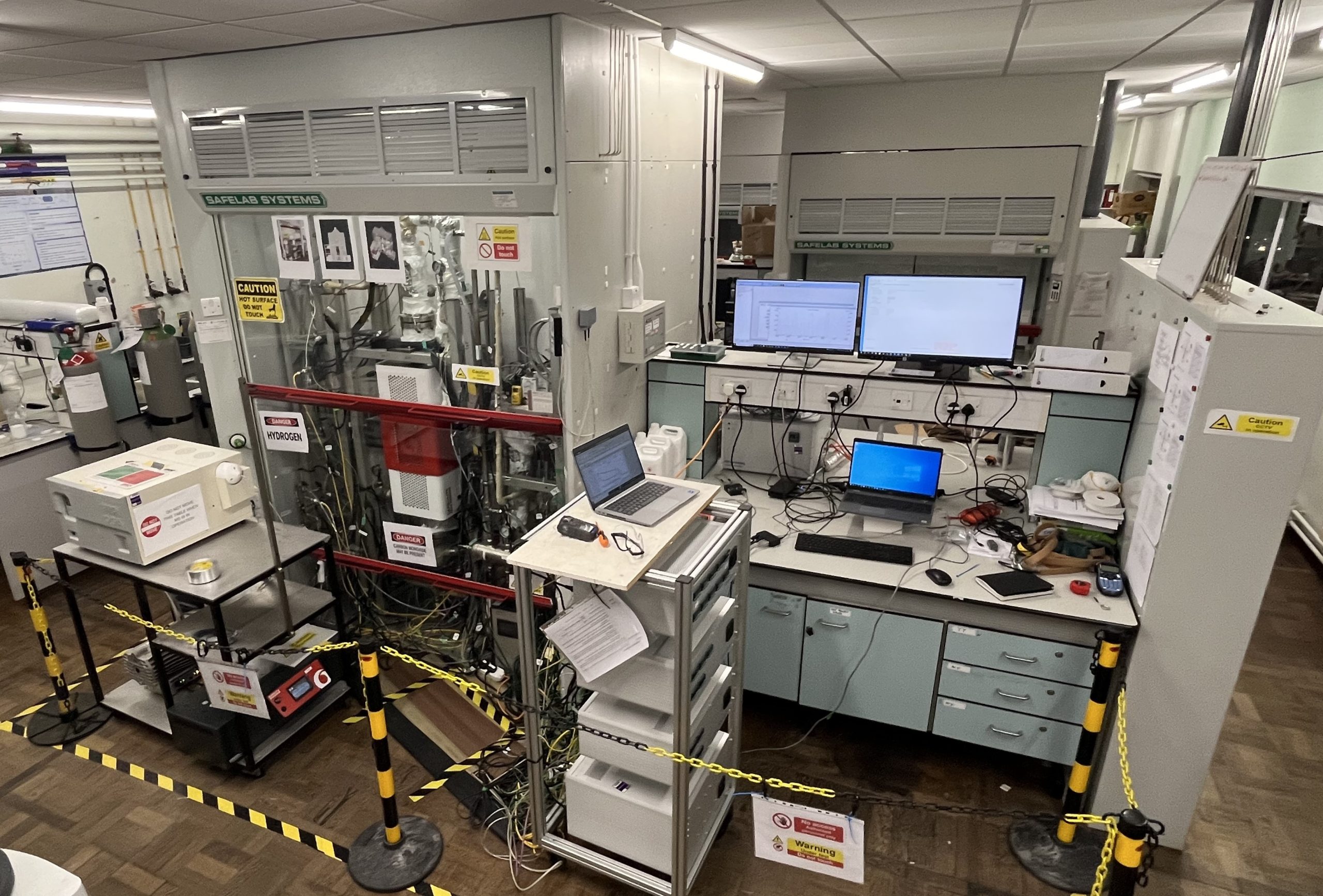A Chemical ‘Memory’ Reactor for Clean Hydrogen Production, Webinar: 10-11 am Thursday 18 April 2024

As part of our summer postdoc-led training series, this webinar will be led by Dr Yongliang Yan from Newcastle University.
Chemical looping is a next-generation technology for carbon dioxide (CO2) capture. Oxygen carriers (OCs) constitute the cornerstone of chemical looping processes. Perovskite-based OCs have recently attracted interest in chemical looping processes due to their excellent redox properties, high oxygen mobility, thermal stability, good oxygen suppliers, and high selectivity to synthesis gas. Such OCs could help to overcome equilibrium limitations of more traditional reactions for high-purity and low-carbon Hydrogen production.
The chemical looping water gas shift (CL-WGS) kit has retrofit potential for current steam methane reforming processes or integration with chemical looping reforming. The potential result would be more efficient, cost-effective and low-carbon H2 production at scale.
A 3 kWth chemical looping water-gas shift reactor has been designed and built at Newcastle University for low-carbon H2 production based on previous successful tests (Metcalfe, I.S., Ray, B., Dejoie, C. et al. Overcoming chemical equilibrium limitations using a thermodynamically reversible chemical reactor. Nat. Chem. 11, 638–643 (2019). https://doi.org/10.1038/s41557-019-0273-2).
Learning outcomes:
- Describe the concept of chemical ‘memory’ for energy conversions.
- Identify the essential procedure and tools for scaling up chemical reactors.
- Consider health and safety risks in reactor scale-up.
- Explore aspects of scale-up of operations and maintenance implications.
Biographies:
Dr Yongliang (Harry) Yan is a research associate in the School of Engineering working on scaling-up a novel chemical looping concept for low-carbon hydrogen production. Dr Yan’s research interest is firmly in CO2 capture technologies, clean hydrogen production, cost-effective energy storage, probabilistic techno-economic performance assessment and machine learning in materials science and energy engineering.
Dr Yan received an MSc in Mechanical Engineering from the University of Lincoln focusing on the CO2 mitigation technologies in Combined Cycle Gas Turbine (CCGT) power plants and went on to complete a PhD in Energy and Power at Cranfield University in 2020. In 2019, he visited the Chalmers University of Technology, Sweden working as a research associate in applying machine learning in oxygen-carrying materials development. During his PhD, he worked as a part-time research assistant in the HyPer project (Demonstration of 1.5 MWth bulk hydrogen production plant by sorption enhanced steam reforming) and teaching assistant in the Energy and Power theme.
This project is funded by the Royal Academy of Engineering through a Chair in Emerging Technologies Award for Prof. Ian S. Metcalfe entitled “Engineering Chemical Reactor Technologies for a Low-Carbon Energy Future” (Grant CiET1819\2\57).
This webinar is supported by the HyDEX project https://hydex.ac.uk/
Address
Online
Online
Online
Online
United Kingdom